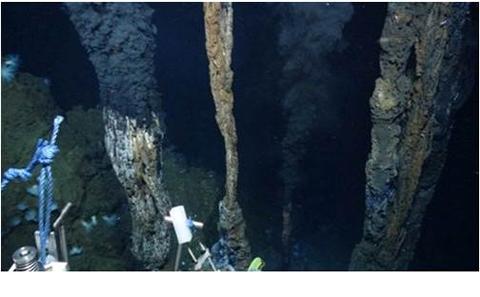Metal Resources from the Oceans Seminar

- Time:
- 12:30 - 13:30
- Date:
- 5 March 2015
- Venue:
- University of Southampton Boldrewood Campus Building 175, Room 1025
For more information regarding this seminar, please telephone Sue Smith on 023 8059 2316 or email s.b.smith@soton.ac.uk .
Event details
SMMI-LR Seminar Series 2015
The oceans cover more than 70% of our planet and contain most of Earth’s major tectonic plate boundaries. Submarine volcanos are associated with constructive plate boundaries at the mid-ocean ridges and in back-arc basins, such as much of the western Pacific. At these volcanos chemical exchanges between magma, hot rocks and seawater can lead to “black smoker vents” and the formation of sulphide mineral deposits, some rich in base metals (e.g., Cu, Zn, Pb), gold and strategic e-Tech elements. Island arcs provide the active setting for the formation of some of our largest copper and gold deposits. Hydrothermal exchange indirectly results in relatively high concentrations of Mn and Fe in parts of the oceans, and these can precipitate over millions of years as polymetallic nodules and crusts rich in manganese, nickel, copper, cobalt and rare earth elements. Hydrothermal particles rained out as muds away from the mid-ocean ridges may provide large deposits of REE. Scientific studies of of the formation of active seafloor hydrothermal systems have enhanced our understanding of the formation of ancient ore deposits that provide many of the essential metals for the global economy. Due to global demands and resource insecurities there may be mining of the seafloor deposits themselves in the (very) near future. However, how to evaluate the size and grade of deposits, the mechanisms and costs of mining, the legal stasis of natural and international resources, and the environmental impacts of exploiting seabed deposits remains poorly known and controversial. New robotic and autonomous technologies may greatly improve the economics of resource identification, economic evaluation, and perhaps mining approaches.
Related Staff Member
Speaker information
Professor Damon AH Teagle,Director of Research, Ocean and Earth Science, National Oceanography Centre, Southampton. Deputy Director (Research), SMMI